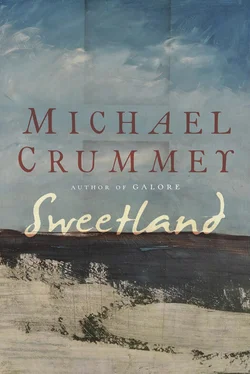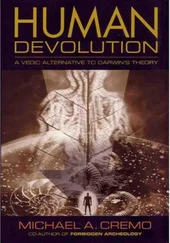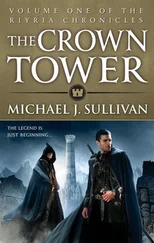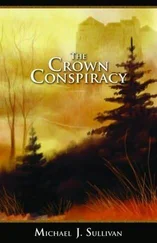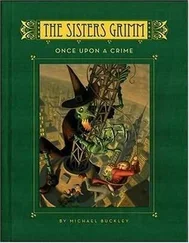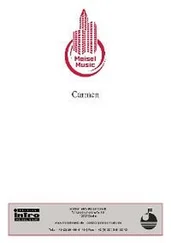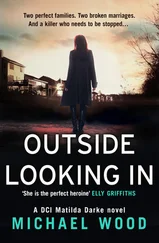He glanced toward the harbour now and then, trying to tell by its location which outline had been the Dolimounts’ house. It was still standing the last occasion he’d come ashore with Duke Fewer—1966 that was, the first Come Home Year sponsored by the Smallwood government, a campaign to encourage the diaspora of economic refugees to spend their summer vacation at home in Newfoundland. Sweetland had given up working on the schooner to stay closer to Chance Cove at the time, fishing on Duke’s longliner, and they’d had a poor season at it. Dozens of people coming back to the cove from the mainland as the fishery floundered. They flaunted their store-bought, handed out suitcases full of trinkets to the youngsters, talked hourly wages and hockey games at Maple Leaf Gardens and how much they missed Newfoundland. Most of them hadn’t shown their faces home in a decade and Sweetland couldn’t wait for the fuckers to leave.
He and Duke did some hook and line in the early fall and trawled through October, with barely enough luck to warrant the money they were spending on gas. They decided to go across to the Burin to try for moose. A cold rain on the barrens and no sign of a living thing to shoot at for three days. Spent their time tramping through sodden gorse and tuckamore, slept nights in a leaky tent not half big enough to accommodate Duke’s appendages. They ate potted meat sandwiches on white bread, drank instant coffee laced with rye. Hands and feet numb from the unrelenting chill and every item of clothes they’d packed soaked through.
I’ve had enough of this bullshit, Duke said. They were crouched under a square of canvas angled over a scraggly fire, their fourth morning out, waiting for the kettle to boil.
Sweetland had his hands stretched to the flame but couldn’t feel any heat coming off it at all. Be a long winter, he said, without a bit of moose meat put aside.
The winter won’t be half as long as the last three days have been, Duke said.
They had a two-hour tramp back to the bay where they’d moored the boat and they walked it in silence, one behind the other. They piled all their gear in the wheelhouse and huddled there in misery as Sweetland nosed into open ocean. And they travelled most of the way back to Sweetland without speaking a word.
I been thinking about going up to Toronto, Duke said when Little Sweetland was in sight. Next spring sometime.
You talk to Ange about it?
Duke was recently married, just long enough for his wife to have the one child and be two months toward having a second.
Not yet, no.
What do you think she’ll think of it?
Probably she’ll be happy to be clear of me awhile.
Yes, Sweetland said. I finds women likes nothing better than being left alone to look after two young ones.
Duke stared across at him.
I’m only saying.
Well shut up out of it, for chrissakes, Duke said. And a moment later he said, You should come with me.
Sweetland shook his head. I hates fucken old Toronto, he said.
Fucken old Toronto pays a buck fifty an hour. Never going to make that kind of money at the fish.
They were swinging out around the cliffs of Little Sweetland, a cloud of mist like a shroud over the east end of the island.
It’s Effie keeping you home, is it? Duke said.
We idn’t married, Sweetland said.
Duke watched him a second. Jesus, he said, I’m gut foundered.
Sweetland looked up to the headlands and, sure enough, there were a handful of figures standing in the fog, their massive shadows motionless on the cliff edge.
Look up there, he said.
Where?
On the headland there.
Can’t see a thing.
Just watch, Sweetland said.
And a moment later the shadowy creatures turned and moved off into the grey.
Jesus, what a size they are.
You think they’re fit to eat? Duke asked.
They looks to me like they’d be tougher than the hobs of hell, Sweetland said, even if you managed to get them on a plate.
Duke shrugged. I don’t mind chewing, he said.
Sweetland eased off the throttle outside the entrance to Tilt Cove, turned into the calmer water.
It’s a big frigging island, Duke.
We’ll just go for a stroll, he said. See what we can see.
They walked up out of the cove, following the old path to the pond on the high ground above the harbour, their woollen socks squelching in their boots.
Be hard to get a clear shot in this weather, Sweetland said.
They’re big as barns. Pilgrim could probably pick one off.
The trail went through a trough of scrub spruce, not a single tree the height of Duke, but the branches crowding the path held tufts of hair pulled from the bison hides as the animals walked past. An hour to reach the headlands and nothing to see there but buffalo pies, some still steaming in the cold air.
They can’t be far, Duke whispered.
They could be halfway to Hibb’s Hole for all you knows.
They skirted the cliffs to the east end of the island, walking until they risked not getting back to the boat before dark. They hadn’t eaten since morning and Sweetland could hear Duke’s stomach grumbling as they cut across the island, the rolling echo like a distant thunderstorm. They walked down into the cove, along the side of one of the few houses still standing, the door long gone, the windowpanes beaten out by weather. Gotta take a leak, Sweetland said, and he turned to the wall out of the wind, let loose against the shale foundation while Duke waited two paces ahead.
This was the Dolimounts’ place, Duke said idly. He was facing away from Sweetland, watching the cove. Jim Dolimount? he said. Married to Eunice?
Sweetland staring into the gloom as he pissed, nearly dark inside. The kitchen empty of furniture, the wallpaper stained and peeling. The floor littered with what looked to Sweetland to be buffalo patties, the animals using the building as a shelter to get out of the weather. He leaned to look through into the living room and his water went dry.
They had nine youngsters, Duke was saying, before Eunice had the hysterectomy into St. John’s.
Duke, Sweetland whispered. He was tucking himself in but never glanced away, afraid the creature would disappear if he did. He reached for the rifle where he’d leaned it against the house, nosed the barrel into the frame to let it rest on the sill. The animal shifted on its feet, the hooves against the wood floor drumming in the hollow space.
What in the Jesus was that? Duke asked just as Sweetland fired. The rifle shot echoed in the empty room like a cannon, knocking the last pane of glass from the window. Duke was shouting but Sweetland couldn’t hear anything over the ringing in his ears.
They tried to haul the buffalo out of the house before they dressed it, but there was no way to get the dead animal through the doorway. Duke brought up a storm lamp from the boat and they butchered the buffalo where it lay, the stink mushrooming in the enclosed space. They carried the quarters down to the water, the thigh bones like a stick over their shoulders, the massive parcel of meat lying pelt side down against their backs. Duke wanted to leave the rest of the carcass where it was but Sweetland wouldn’t have it.
Those wildlife officers is out here two or three times a season, he said. I don’t want anyone coming around Sweetland looking for poachers.
They dragged the head and spine across the threshold and down to the shoreline, throwing it into a fathom of water. They gathered up the shin bones and the mess of the internal organs in the bloody cloak of the pelt and tossed that into the cove as well, but for the heart and liver that they wrapped in a square of cloth and tucked away in Duke’s pack. Sluiced the blood and offal out the door of the house with buckets of water. They crouched in the landwash then to clean the blood off their hands and forearms in the bitter cold of the ocean.
Читать дальше
